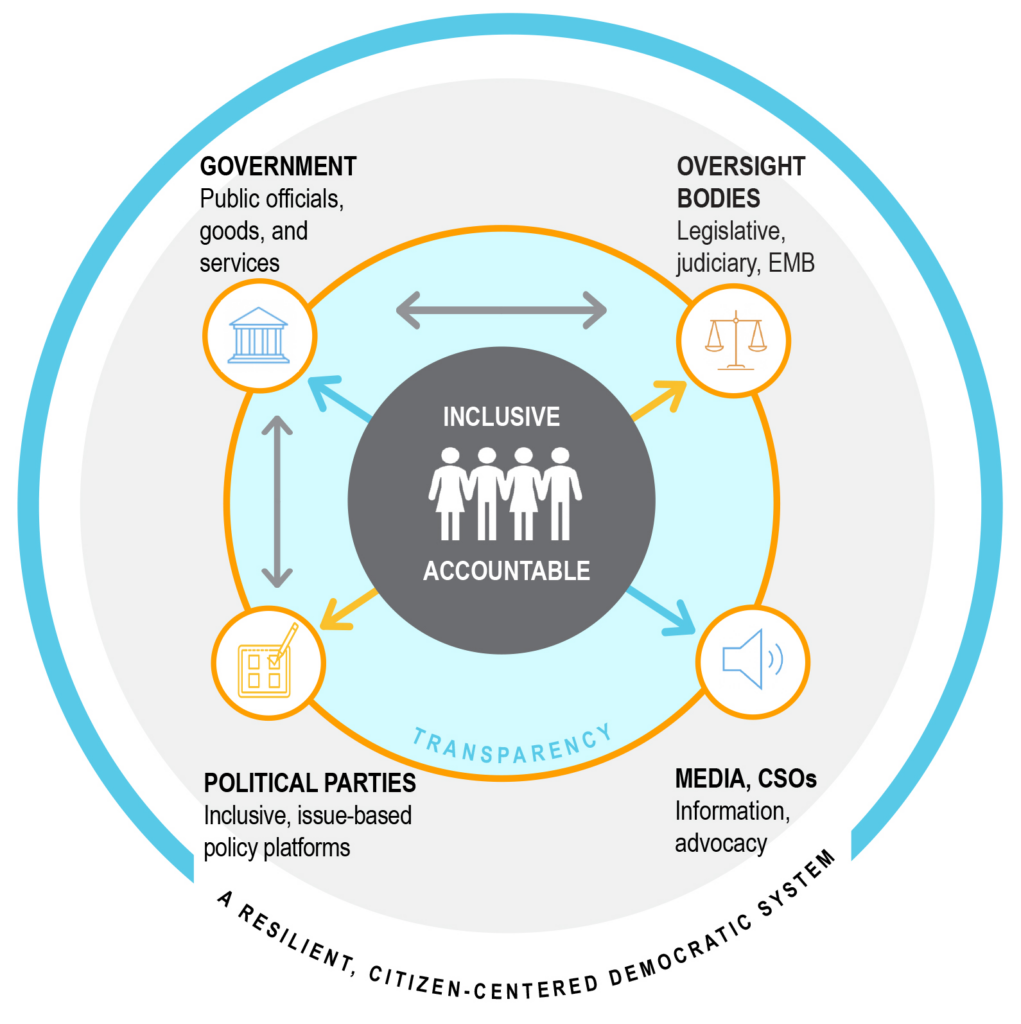The Democratic Elections and Political Processes (DEPP) Learning Agenda is CEPPS’ first consortium-wide learning initiative designed to guide and synchronize CEPPS’ partner programming, research, evaluative, and learning activities supported through USAID’s DEPP Cooperative Agreement. The DEPP Learning Agenda aims to advance the Democracy, Rights, and Governance (DRG) sector’s understanding of interventions that effectively and sustainably promote self-reliant, citizen-responsive, and resilient democratic governance and respect for human dignity, rights and rule of law.

The DEPP Learning Agenda features five core themes, selected based on their alignment with and importance for testing the DEPP Global Theory of Change (GTOC), which is relevant to DEPP programming and programming across the DRG sector.
The DEPP Learning Agenda and the DEPP GTOC focus on the relationships of accountability between key stakeholders within a democracy – citizens, political parties, civil society, and media, government institutions and oversight bodies, and transnational bodies and coalitions – to explore the ways in which each set of stakeholders can leverage their respective democratic mechanisms for ensuring that government is inclusive, responsive, and accountable to all its citizens. The DEPP Learning Agenda helps DEPP partners prioritize where we invest our time and resources in a cohesive and strategic way, allowing partners to gather evidence for the DRG sector while also testing the GTOC under DEPP.
Check out what we’re learning! Watch the 2023 Annual Learning and 2024 Annual Learning Forum now!
CEPPS partners have also identified a variety of emerging questions of increasing relevance and importance to the DRG sector and have left space within the DEPP Learning Agenda to adapt and respond to issues of importance that are identified throughout the DEPP award period (FY22-FY26).
CEPPS also recognizes that the DEPP Learning Agenda initiative is as much about the process as it is the product. Several important cross-cutting questions were raised during the development of the DEPP Learning Agenda that will inform its operationalization moving forward.